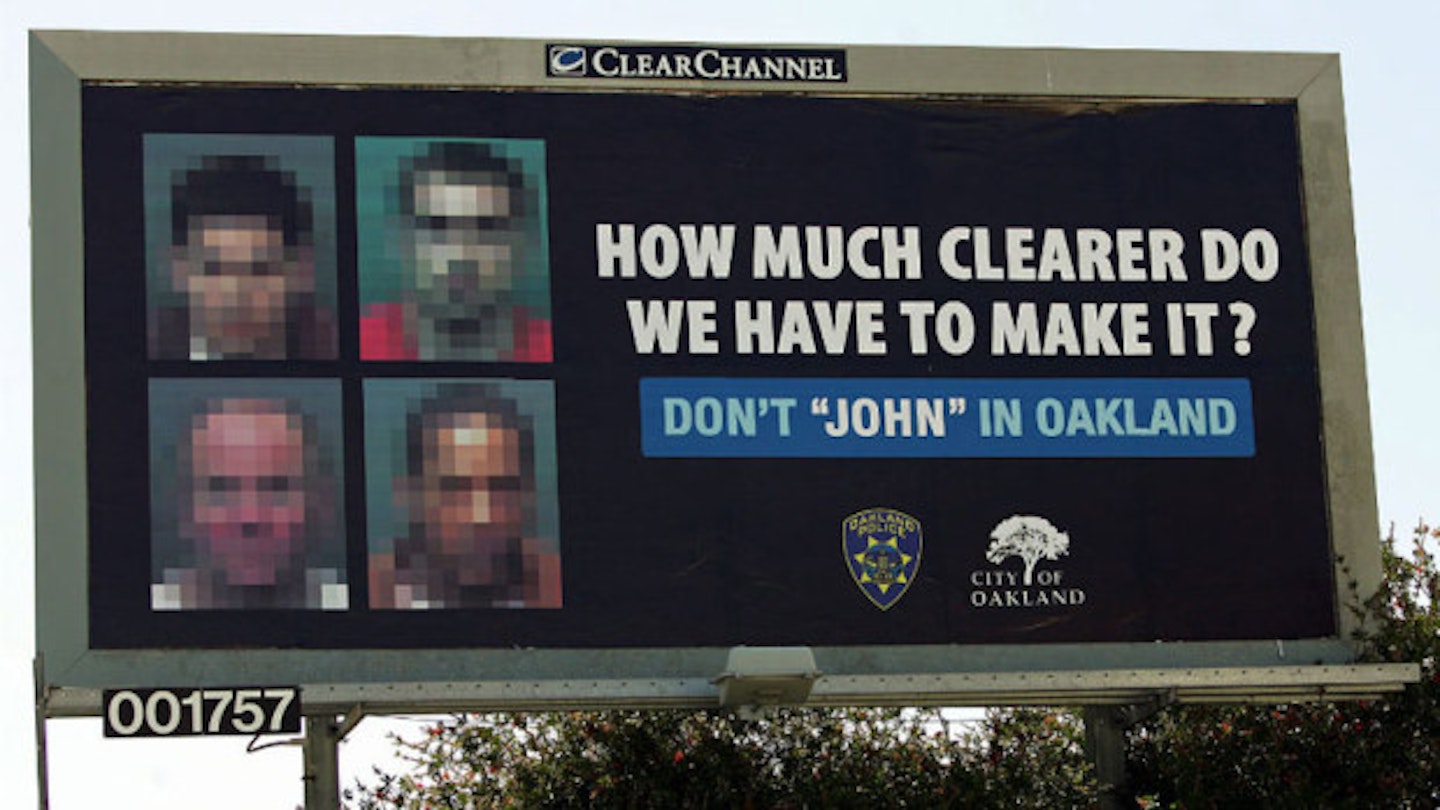A new campaign to name-and-shame alleged pimps and clients before they’re convicted has attracted controversy in the US. Publishing mug shots next to names, dates of birth and the charges against them, the Oakland, California police department puts a disclaimer under the images, stating that they’re all ‘presumed innocent until proven guilty in a court of law’.
A whole website dedicated to people who’ve been charged of horrific crimes? Naming and shaming them before they go to court? Sounds a bit dodgy.
But then you look at the crimes – Oakland is the ‘hub of the West for child prostitution’ according to Lieutenant Kevin Wiley, and the police say prostitution in the area is increasingly linked to homicides and the illegal drug market.
Unlike the mistress-shaming website ShesAHomeWrecker.Com, where women are named-and-shamed for being ‘the other woman’, these men are actually charged with the offences they’ve allegedly committed. Plus, the information is already a public record. Remember Jeremy Meeks, the beautiful convict who had his mugshot go viral after it was discovered he was a total babe? The only reason the photo was out in the public, leery eye, was because mugshots are made public in America (that’s also how we see photos of celebrity mugshots after they're arrested).
Plus, over in the UK, it’s been found that when alleged repeat sexual offenders’ identities are publicised, more people are encouraged to come forward about abuse they may have suffered at their hands. It’s basically a modern day equivalent of a detective going round to different houses and handing out a picture and asking ‘have you seen this man?’ just online…available for everyone in the world to see.
An FBI spokesperson for the San Francisco area told Time, however, that the Oakland police department is ‘really drawing from the hip to raise public awareness’.
It’s pretty extreme, but actually totally legal and legit under American law. It does, however, makes the whole British debate around whether alleged rapists should still be named before they’re charged seem pretty chilled in comparison.
** Follow Sophie on Twitter @sophwilkinson**
This article originally appeared on The Debrief.
